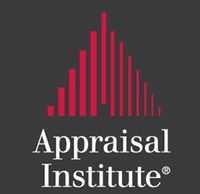CBRE Econometric Advisors Forecasts Vacancy Remaining at 5.8% in 2011 and Declining to 5.3% in 2012, as Apartment Demand Remains Strong
Boston, MA – December 15, 2010 – (RealEstateRama) — The U.S. multi-housing vacancy rate is expected to remain relatively stable through 2011, ending the year at 5.8%, before falling further to 5.3% during the course of 2012, according to a new forecast from CBRE Econometric Advisors (CBRE-EA). Multi-family property demand will remain solid, continuing a trend that began when the vacancy rate peaked at 7.4% at the end of 2009.
CB Richard Ellis Group, Inc.‘s forthcoming Annual Trends 2011 report shows that in 60 markets across the U.S., apartment demand (occupied stock) grew at an annualized pace of about 300,000 units during the strongest quarters of 2010. A combination of factors drove this improvement, including reduced unemployment; continued high foreclosures which put more renters in the market; and ongoing, broadly-based rent discounts and concessions intended to attract new tenants and keep existing ones. As of 3Q 2010, the vacancy rate for the nationwide ?same-store? sample of 3.4 million professionally-managed apartment units was 5.8%.
“While pricing power is still on the tenants‘ side, landlord concessions continue to dissipate and this trend should lead to effective rent growth in 2011,? said Gleb Nechayev, Senior Economist, CBRE-EA.
However, Mr. Nechayev adds, ?Own-to-rent conversions and falling home prices are downside risks for multi-housing in the markets most directly hit by the housing bust, while a broader recovery is unlikely to be robust without stabilization in the housing sector and dissipation of foreclosures.?
The CBRE report notes that while broader renter demand will expand as the homeownership rate drops, rental property supply will rise as well. Markets which experienced the biggest housing busts and highest foreclosure rates—especially those in Arizona, Nevada, Florida and parts of California—will still be more exposed to the ?shadow? rental supply risk under such a scenario. While foreclosures and strategic defaults can boost apartment demand in the near term, they are one of the sources of downside risk to the economy and the medium-term outlook for apartment rent and revenue performance.
CBRE‘s Annual Trends 2011 report also analyzes the expanding ?renters-by-choice‘ segment of the marketplace. Given recent experiences with homeownership, it appears that many people are beginning to question its traditional promise of building substantial equity and associated economic rewards. Renting may not have the same incentives as homeownership, but it provides a key advantage—greater employment mobility. In the current economic environment, renting is not only a necessity for those who cannot afford purchasing a home, but it is increasingly a choice for those who can. A viable rental market should help restore the right balance between homeownership and equity.
According to CBRE-EA, apartment building sale prices are rising in select markets, and differentiation across markets and individual assets will continue as investors seek reliable income streams. Large metropolitan areas where both home prices and rents tend to be more expensive (relative to local incomes)—Boston, New York, Los Angeles, San Francisco, San Jose, and Washington DC—accounted for almost half of apartment sales dollars in 2010. Next year, further differentiation in property performance and pricing is anticipated—not just across sectors and markets but also across individual assets based on their quality and specific location.
“In such an environment, the best income-producing properties—those distinguished by superior quality of construction and the best location–but not necessarily categorized as ?luxury‘ or ?high-end‘ –are likely to appreciate sooner and more sharply than the rest,? states Mr. Nechayev. ?Just as values for some lower-quality properties inflated when the economy was strong and capital markets were very liquid, values of some superior properties were negatively impacted when the economy weakened and capital markets contracted. Now that the economy and capital markets are beginning to stabilize, we will see more differentiation in pricing, creating unique investment opportunities next year.?
To speak with Mr. Nechayev or another CBRE-EA expert, please contact Robert McGrath (212.984.8267 or ).
About CB Richard Ellis
CB Richard Ellis Group, Inc. (NYSE:CBG), a Fortune 500 and S&P 500 company headquartered in Los Angeles, is the world‘s largest commercial real estate services firm (in terms of 2009 revenue). The Company has approximately 29,000 employees (excluding affiliates), and serves real estate owners, investors and occupiers through more than 300 offices (excluding affiliates) worldwide. CB Richard Ellis offers strategic advice and execution for property sales and leasing; corporate services; property, facilities and project management; mortgage banking; appraisal and valuation; development services; investment management; and research and consulting. Please visit our Web site at www.cbre.com.
Contact:
Robert McGrath
212.984.8267











